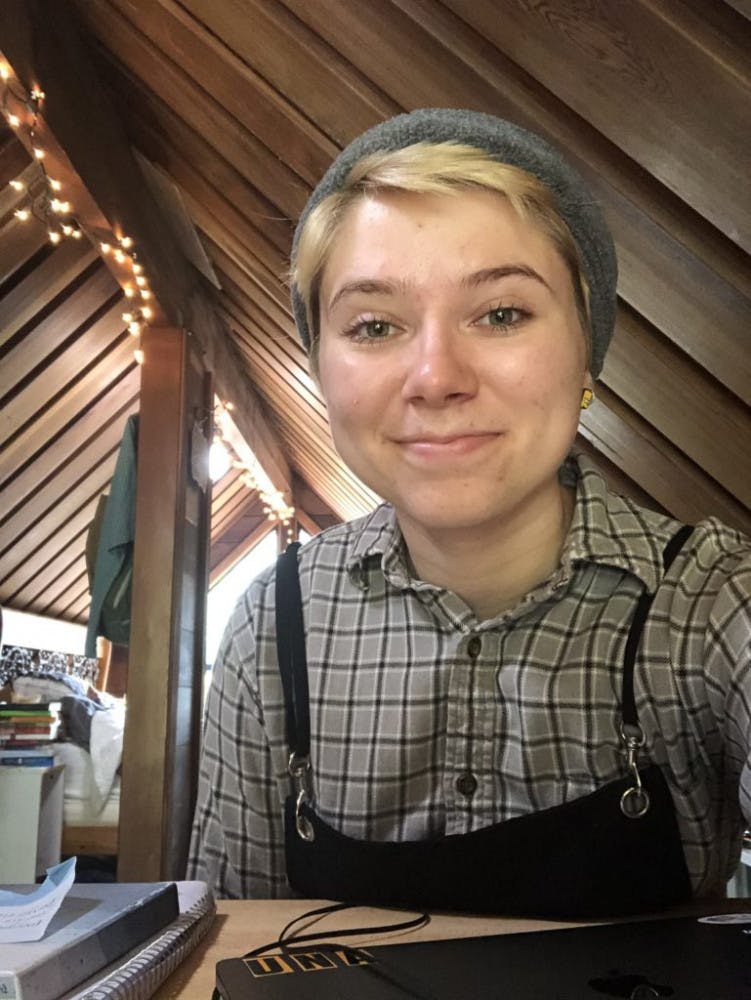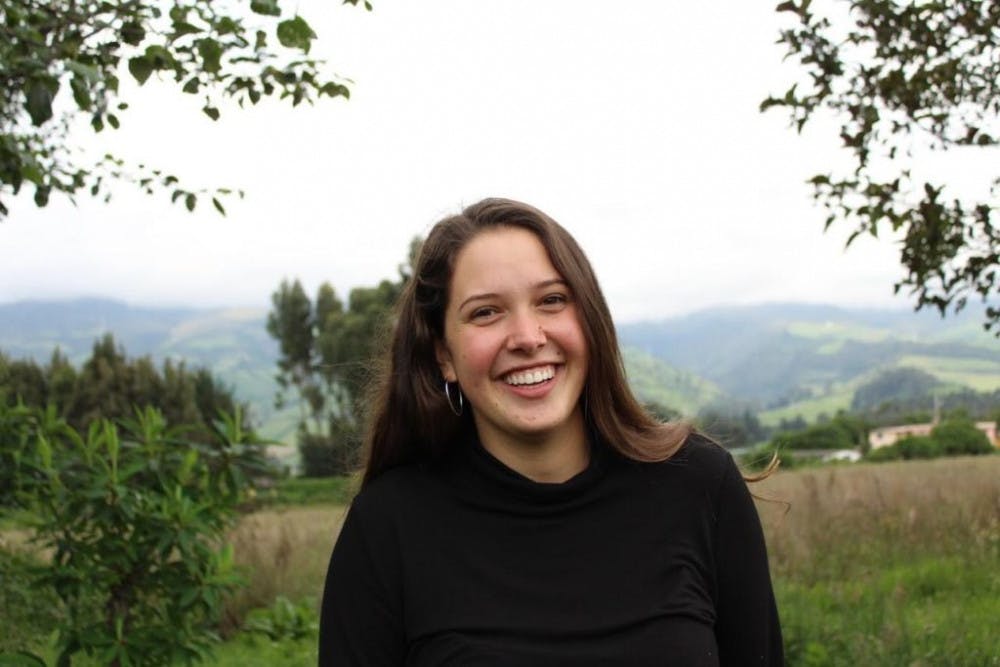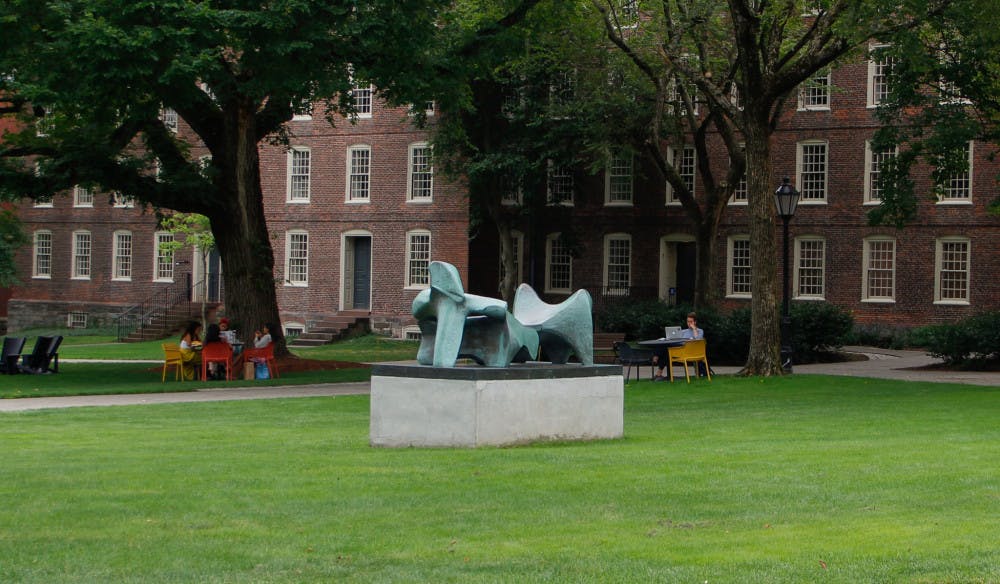Sparsely populated dorm buildings and classrooms not yet in use. Eyes glued to computer screens. Care packages filled with masks and hand sanitizer.
On campus and off, students are embarking on an unusual first week of classes that would have been unthinkable a year ago.
Students back on campus are navigating life on College Hill without University events or meals at the Ratty and following social distancing restrictions. Remote learners outside the Providence area face long Zoom hours while straddling their academic and home lives.
First years’ time at Brown won’t begin until January. Though not currently enrolled full time, they are able to attend one class for credit this fall, virtually and free of charge.
And some students have decided not to return for a while, instead opting to work, intern or spend time on interests they would not otherwise pursue.
The Herald spoke with five students, spread across three continents and in four class years, about a first week back to school like no other.
[caption id="" align="aligncenter" width="650"]

Claire Heiden ’21
Providence, Rhode Island
Claire Heiden's first day of class began unlike any she had experienced before: with a nasal swab.
After the COVID-19 test, Heiden and her friend, Henry Drewes ’21, sat on the Pembroke Field and opened their laptops for online instruction, only to encounter technical troubles. Two hundred students in little webcam squares watched on as the instructor’s audio spluttered and video-quality waned.
The friends met four years ago at the Ice Cream Social, the first-year orientation event that sees throngs of new students flock to Main Green for chit-chat and dessert under the twinkle of fairy lights.
No such gatherings are on the horizon for this year, but Heiden said she is committed to building and maintaining community in other ways. New territory, but they are navigating it together.
Long walks, picnics in India Point Park, trips along the East Bay Bike path. “There’s just definitely a greater appreciation for life beyond Brown’s campus,” she said.
“Although this situation is so hard and challenging, I think it’s also brought out a lot of compassion,” she said. “There’s a level of understanding right now on campus among students that’s really beautiful to see.”
[caption id="" align="aligncenter" width="650"]

Una Lomax-Emrick ’23
Sea Ranch, California
It was via Zoom, while sitting in the loft of their parents’ house in Sea Ranch, California that Una Lomax-Emrick ’23 got the most social interactions that they had had since the coronavirus pandemic started.
Due to health concerns, Lomax-Emrick hasn't seen anyone but immediate family for months. This made the new start of the semester particularly special for them as they found little joys in seeing the familiar beige Grad Center curtains and the brick walls from their old Champlin Hall dorm through other student’s screens.
But Lomax-Emrick is also concerned for the wildfires currently raging across their home state. The situation makes remote learning “a bit more challenging” and stressful than it already is.
Last week, a heat wave from the fires caused blackouts in their town and they worry that possible fires spreading may force their family to suddenly evacuate. These factors pose a threat to Lomax-Emrick’s possibility of taking synchronous classes for the rest of the semester.
Lomax-Emrick said they still feel that being able to take synchronous classes right now is “a huge privilege.” They added that professors have played a huge part in understanding and accommodating any circumstances. For them this gives them an “added boost of confidence” because even if the situation gets bad they would be supported.
The first day of classes was a “wild experience” and “really nice to break the monotony”. It was also quite a tiring experience. A prospective Theater Arts and Performance Studies and English concentrator, Lomax-Emrick is excited to focus on more writing- and reading-heavy classes, which according to them lend themselves better to remote instruction.
Lomax-Emrick said that “Zoom fatigue is a real thing.” Trying to stay active and participate in classes was challenging even though they highlighted that they are very lucky to work well from home with their parents and not have any connectivity issues.
[caption id="" align="aligncenter" width="650"]

Camila Olander ’24
Quito, Ecuador
Milking cows and picking fresh produce are not the typical hallmarks of a first-year college experience. But when the University announced that first years would not be welcomed to College Hill until spring 2021, Camila Olander was determined to use the months as a springboard for new experiences, rather than a delay.
Currently shopping classes from her bedroom at home in Quito, Ecuador, Olander will soon move to an organic farm an hour outside of the city. “It’s definitely not what I expected when I was doing my college applications,” she said.
Olander has been exploring seminars on topics ranging from gender in the ancient Mediterranean world to government efforts to regulate mind-altering substances since the early 20th century.
“My criteria for shopping classes is mostly about prioritizing student engagement versus pre-recorded lectures and large classes,” she said.
Still, the difficulties of turning new faces on webcams into real connections linger. The first few weeks of college are typically governed by a swirling mixture of nerves and excitement. Now, pile on the stress of COVID-19 and the postponement of meeting classmates for five months.
But Olander remains unwaveringly optimistic about the months ahead, grateful for the opportunity to learn beyond the traditional classroom. To be outside and physically active feels both personally and academically important at the moment, she said. “It’s a different way of learning about the world around you.”
For now, the classroom can wait. “I’m excited,” she said. “Even though I have no idea what lies ahead.”
[caption id="" align="aligncenter" width="650"]

Aaron Gruen ’22.5
Prague, Czech Republic
For Aaron Gruen, the pandemic has conjured an unlikely silver lining: the opportunity to spend four months dedicated to playing the cello.
In mid-August, Gruen was preparing to start his junior year remotely from his home in Munich. Less than two weeks later, he decided to take the semester off to enroll at the Prague Conservatory.
“Everything changed really quickly,” Gruen said. A cello instructor pointed him in the direction of a program at the music school and, with little expectation of the plan coming to fruition, Gruen sent off his application materials. Shortly after, he was accepted and began packing his bags for the Czech Republic.
“It’s about the only good thing that’s come out of the whole situation,” he said. “The whole time I’ve been at Brown I’ve felt conflicted because I want to spend a lot of time on music but there are so many other things to do.”
Gruen, who has been playing the cello for 17 years, cannot quite believe his luck.
A far cry from the nasal swabs and empty lecture halls that greet University students on College Hill, Gruen’s classes will, for the time being, all be in person. His schedule will be punctuated with orchestra rehearsals, concerts and evening Czech lessons.
“I’m really thrilled,” Gruen said. “And really grateful.”
[caption id="" align="aligncenter" width="650"]

Nidhi Bhaskar ’21
Providence, Rhode Island
Nidhi Bhaskar ’21 sat in the courtyard of her off-campus apartment on College Hill enjoying the last days of summer as she explored what her schedule would be for the upcoming semester.
Bhaskar found herself shopping a lot more classes, since instead of running across campus, all she has to do now is change tabs to visit a potential class.
While shopping ENGL 0930: “Introduction to Creative Nonfiction”, Bhaskar was one of 120 students shopping for one section of the class, which is capped at 17 students.
But even though she was connected to many people, Bhaskar found Zoom to be very isolating. For her, cohesive and integrated discussions are traded for a Zoom speaker view spotlight on who is speaking. This makes conversations seem more like people are talking over each other than talking together.
Due to the newfound nature of these discussions, Bhaskar decided to drop her Russian language class and explore another field instead. Bhaskar added that an integral part of language courses is being able to speak clearly and have classes in a “more paper and pen approach,” which does not occur smoothly when the classes are remote.
Because of Zoom’s isolating nature, Bhaskar added that it was key for her to schedule some in-person interaction among a sea of Zoom-based interactions. She stated that having events like outdoor movie nights and socially distanced birthday parties were really important in feeling connected. Bhaskar added that she really admires how her classmates and friends have been able to stay positive and find creative solutions in a senior year that no one envisioned.





